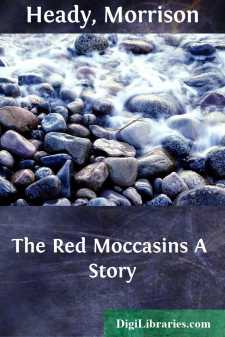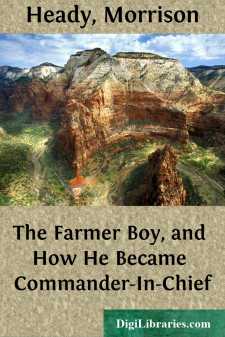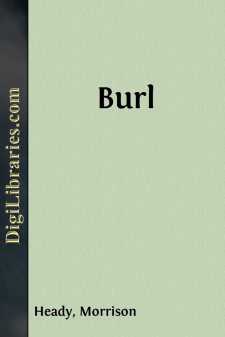Categories
- Antiques & Collectibles 13
- Architecture 36
- Art 48
- Bibles 22
- Biography & Autobiography 813
- Body, Mind & Spirit 142
- Business & Economics 28
- Children's Books 17
- Children's Fiction 14
- Computers 4
- Cooking 94
- Crafts & Hobbies 4
- Drama 346
- Education 46
- Family & Relationships 57
- Fiction 11829
- Games 19
- Gardening 17
- Health & Fitness 34
- History 1377
- House & Home 1
- Humor 147
- Juvenile Fiction 1873
- Juvenile Nonfiction 202
- Language Arts & Disciplines 88
- Law 16
- Literary Collections 686
- Literary Criticism 179
- Mathematics 13
- Medical 41
- Music 40
- Nature 179
- Non-Classifiable 1768
- Performing Arts 7
- Periodicals 1453
- Philosophy 64
- Photography 2
- Poetry 896
- Political Science 203
- Psychology 42
- Reference 154
- Religion 513
- Science 126
- Self-Help 84
- Social Science 81
- Sports & Recreation 34
- Study Aids 3
- Technology & Engineering 59
- Transportation 23
- Travel 463
- True Crime 29
Morrison Heady
Morrison Heady (1829-1915) was an American author, inventor, and educator who became both blind and deaf at a young age. Despite these challenges, he became a prolific writer and is known for his works such as "The Farmer Boy" and "Bettie and the Fairies." Heady was also an advocate for education, inventing a "talking glove" that helped communicate with those who were deaf and blind. He is often referred to as "the Blind Bard of Kentucky" for his significant contributions to literature and advocacy.
Author's Books:
Sort by:
by:
Morrison Heady
CHAPTER I. Portrait of Our Hero. Once, in the spring-green years of the good old times, when our great-grandfathers were great-grandchildren themselves, there lived in the land of green Kentucky a sprout of a man, some dozen years old, who went by the name of Sprigg. And "Sprigg," for aught I know to the contrary, was his real name; though it has so little the sound of a name, I sometimes...
more...
by:
Morrison Heady
The reader will remember, that, in the preface of "The Printer Boy," I promised the next volume should be "The Farmer Boy; or, How George Washington became President." That pledge has never been redeemed, though some labor has been performed with reference to it. And now Providence seems to direct the fulfilment of the promise by the pen of another, soon to be well known, I doubt not,...
more...
by:
Morrison Heady
PREFACE. Some one has said that inasmuch as the Preface to a book is the last thing that is written, it ought to be the last that is read. I suppose that some readers prefer to omit the Preface until they have read the book, for many writers, Lord Lytton among the number, really destroy the illusion of a work of fiction by specifying the conditions under which it was written. A certain amount of faith...
more...




